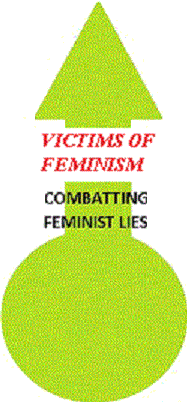|
It is not surprising that academics
and journalists have, together, abolished large chunks of Human
and Environmental History. That they have mostly done this for political
reasons should surprise no one who has paid attention to the behaviour
of these sorts of people.
There are three main ways in which this abolition has taken place:
by the use of the terms "colonialism" and "indigenous"
and by elevating "conservation" to the status of a near-religion.
-
Colonialism
As I said in my article, "The Racist
Term 'Colonialism,'" this term is used to refer to European
political domination from the sixteenth to the twentieth centuries,
but there is no indication by writers on "Colonialism" of
any objective difference between what the Europeans did at that time
and what countless other human groups have done on a large or small
scale. History is full of land-based empires, such as, for example,
the Russian, Chinese, Roman, Macedonian, Napoleonic, Ottoman, Holy Roman
and Mongol empires. Surely the fact that many European colonisers travelled
by sailing ship, rather than overland, is not a relevant factor!
What makes it absolutely clear that Colonialism, as a term, is just
a stick to beat dead White people with is the fact that the
Wikipedia article on this topic actually includes a short section
entitled "British public opinion about the British Empire"!
This section uses words like "pride" and "shame"
and thus makes it clear that the term "Colonialism" is racist
and singles out one particular continent and one particular period of
time as an exercise in Moral Philosophy, rather than objective historiography.
-
Indigenous
Similarly, as I said in my article, "Stupidity
about the word 'Indigenous'", it is a stupid academic and popular
practice to refer to anyone living in a given stretch of land before
the arrival of Europeans as "indigenous" or "native". For example, the
Maoris did not constitute a political or cultural unity before the arrival
of Europeans in New Zealand, since they were divided into warring tribes.
Moreover, the Maoris' genetic make-up shows that their
ancestors were both Polynesians and Melanesians -- the Polynesians
having started island-hopping from Taiwan. The Maoris
probably arrived at different times from different Pacific islands,
which were themselves politically and culturally distinct from each
other. So there was no Maori entity there which could be called "indigenous",
and no one knows which of the component tribal entities was the first
on the scene, or if indeed they wiped out the real "indigenous" people
who may have preceded them.
Over the next few years the intertribal fighting intensified,
and by 1822 Ngati Toa and related tribes were being forced out of
their land around Kawhia after years of fighting with various Waikato
tribes often led by Te Wherowhero. Led by Te Rauparaha they began
a fighting retreat or migration southwards (this migration was called
Te-Heke-Tahu-Tahu-ahi), conquering hapu and iwi as they went south.
This campaign ended with Ngati Toa controlling the southern part of
the North Island and particularly the strategically placed Kapiti
Island, which became the tribal stronghold for a period.
So, who are the real "indigenous" people of the area
around Kawhia -- Ngati Toa or the Waikato tribes? Or had the Ngati Toa
themselves driven out the former inhabitants of the area around Kawhia?
Who knows? And, if someone knows, are they going to tell us the truth?
-
Conservationism
The conservation movement, also known as nature conservation,
is a political, environmental, and social movement that seeks to manage
and protect natural resources, including animal, fungus, and plant
species as well as their habitat for the future.
However, the obvious criticism which can be made of conservationism
is that extinctions have often occurred in the past, so it is nonsensical
to try to prevent extinctions from happening in the present and future.
In all probability, every present-day species of animal, fungus and
plant has helped to cause the extinction of other species in the past.
Why conserve the present species, rather than restoring their predecessors,
or the predecessors of their predecessors?
Another criticism is that some species are given preferential treatment
and others are ignored -- or worse! Who is trying to preserve the Coronavirus
or disease-causing bacteria? Why is disproportionate attention paid
to the conservation of pandas, whales and polar bears?
Another nonsense is the underlying assumption that we humans are not
part of nature. We are just one species amongst others, although we
are very powerful.
Conservationism is essentially absurd! For example, I live near the
Red Zone in Christchurch, an area that consists of the remnants of people's
lawns and (often exotic) garden plants, after the removal of all buildings.
The buildings were removed, because the area was regarded as too prone
to severe damage in the event of an earthquake. A group of people has
recently come along and decided to plant native plants in a large part
of the Red Zone. Maybe that is a good thing to do, and maybe not, but
what is really weird is that they call this "Conservation"!
It is the exact opposite of conservation: it involves the destruction
of the current ecosystem and its replacement with a different ecosystem.
To the extent that this group does any thinking at all, it appears to
think that the type of vegetation that was here before the arrival of
humans -- or maybe just before the arrival of White humans -- has more
right to exist there than the current types -- or the types which existed
there further back in time!
-
Conclusion
These are three ways in which people are essentially telling lies
for political purposes. The consequences of these lies are that preferential,
racist, discriminatory treatment is being given to certain racial groups
(such as Maoris) and to certain non-human species. Human and non-human
history is being censored and abolished, if it related to time-periods
which do not suit the political agendas of Leftist media and academics,
etc..
|
